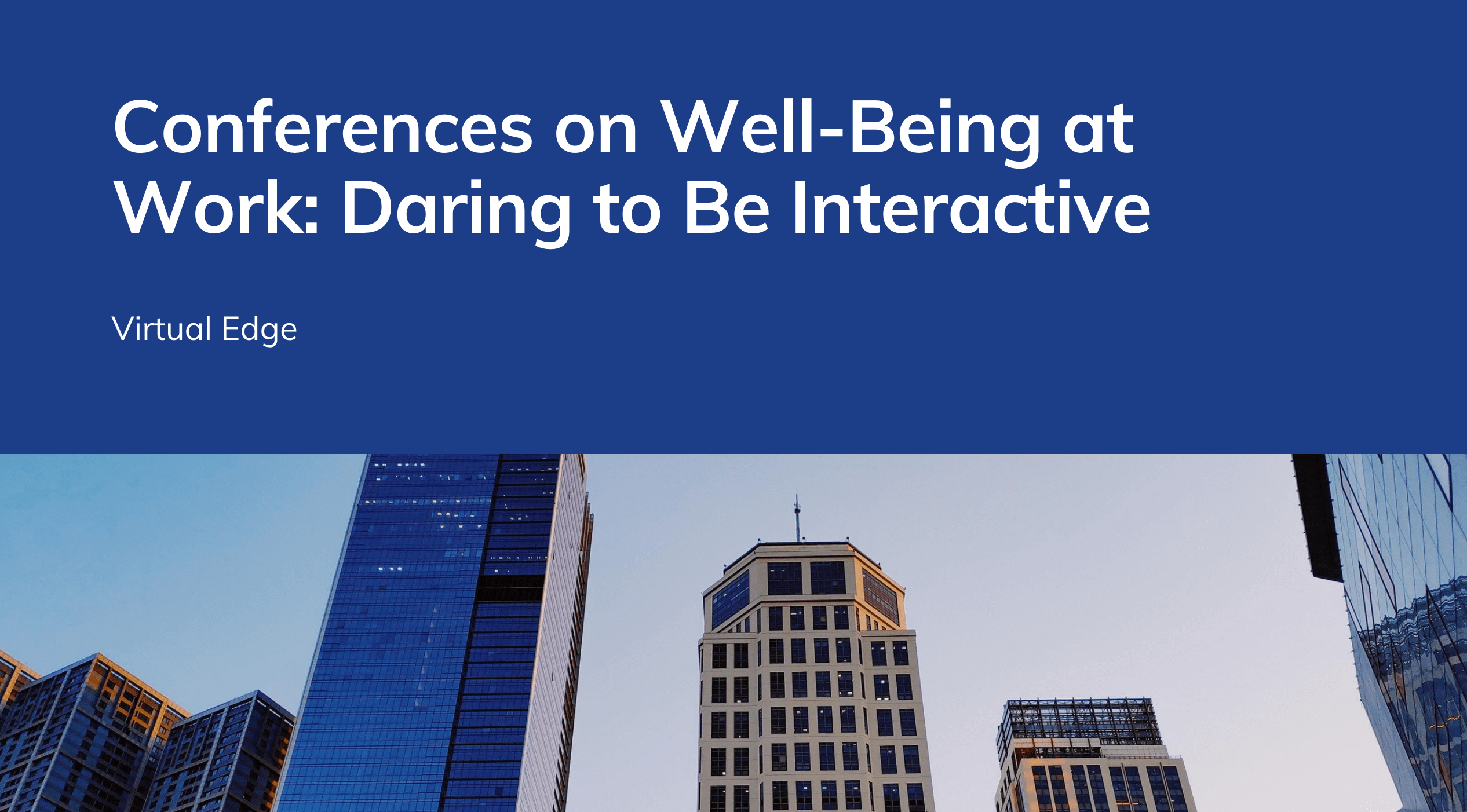Behind a conference project, the objective may be to develop a culture of well-being in the company, to infuse a little happiness and optimism into the daily professional life or to start a day of seminar with dynamism and good humor.
But how to choose? Discover our selection of 6 inspiring conferences.
ORGANIZE A WELLNESS CONFERENCE IN YOUR COMPANY
Some companies take advantage of plenary sessions or seminar meetings to raise awareness of the quality of life at work (QWL) among their teams. In this case, the most suitable format may be a conference on well-being at work.
However, the topics are numerous and it is important to distinguish between more professional or more personal subjects, subjects around physical health or emotional and relational balance. Common topics include:
- Conference on occupational health: to inform teams about the major health determinants and prevention reflexes (diet, work postures, and MSDs) at work
- Conference on nutrition: to help employees adopt a healthier, balanced and sustainable diet according to their work rhythm.
- Conference on change: to better address a transition phase – whether it is a simple change of tools or an in-depth restructuring – and include all employees
Whatever the topic, the professional speaker must have key competencies and will also have to be familiar with the company’s situation and its QWL commitments.
WORKSHOP OR CONFERENCE?
A conference will allow for more participants than a workshop and will offer the first opening on these topics. However, it can suffer from a lack of intimacy and limit the possibility of asking more personal questions or engaging in small group exercises.
The risk is then to fall into a rather theoretical lecture followed by questions and answers, which can easily lose the audience.
Even if the workshop format remains the preferred form for intimacy and interactivity, well-thought-out conferences can offer a strong involvement through active participation in exercises to be done altogether.
Within our collective, we have thought about formats for conferences on well-being that avoid these pitfalls and allow interactivity and the acquisition of live tools.
OUR SELECTION OF 6 CONFERENCES ON HEALTH AT WORK AND QVT
We have put together 6 conferences with our group of speakers, some practical, some inspiring, to explore different aspects of well-being at work.
Since the coronavirus crisis, we have been hosting 80% of our conferences online, with a co-hosting system that adds a little pep and conviviality to the exchanges. Discover how with our coordinator Marion, in this video made in confinement.
8 GOOD PRACTICES TO BE IN TOP SHAPE
Between breathing, sport, food or stretching, this active conference skillfully mixes different themes of well-being at work to help employees adopt a better lifestyle and gain vitality at work.
ANTI-STRESS: TODAY, I DECIDE TO DO MYSELF GOOD!
What is stress? How does it affect our body and mind? How do people who work in high-risk, high-tension jobs like fighter pilots manage their stress? What are the effective tools to reduce stress in the heat of the moment and to take a step back when faced with a disturbing emotion?
WORKING DURING THE CRISIS, FIND A WAY TO BALANCE
The health crisis has forced many organizations to adapt to telework without being prepared for it, and managers and employees have had to face this unprecedented situation. This interactive conference offers a moment of collective reflection, in order to allow arbitrage in conscience on the return to optimal conditions of life at work and to work on the first steps to initiate changes.
DEVELOP YOUR SUPERPOWERS
If your teams are going through a slump and you want to help them find meaning in their work, then give positive psychology a chance to re-motivate and gain self-confidence through simple exercises and quick routines to put in place.
BENEVOLENT COMMUNICATION: SURVIVAL KIT…
This conference lays the foundations of communication based on authenticity and mutual listening. How to listen to the other person in a way that makes them want to express themselves? How to express one’s needs so that they are better heard? What are the keys to pacifying relationships at work and in general?
WORK OF THE FUTURE: HOW TO PREPARE FOR IT?
Faced with new generations in search of meaning, and the supposed end of “loyalty” to the employer, how can we rethink today’s company? What are the reactions to professional mobility and the rise of freelancing?
Do new organizational modes (“liberated” or “opal” companies) allow us to respond to these issues? With the help of several case studies and inspiring examples, this conference looks at the challenges of tomorrow’s work and the adaptations needed at all levels, individual and collective.
